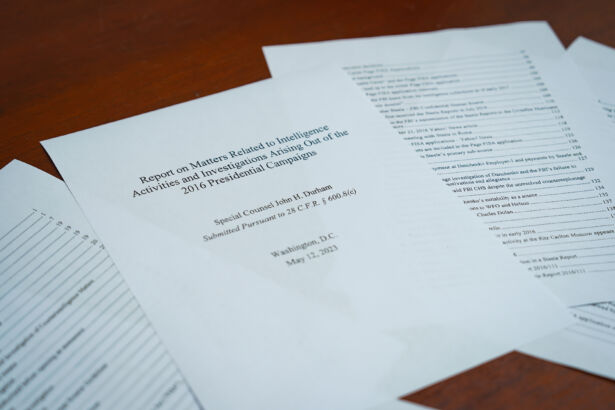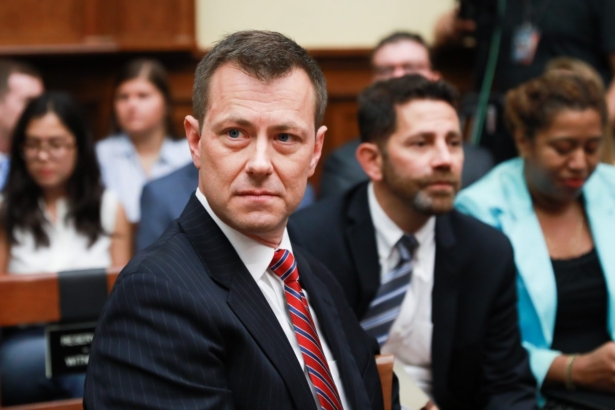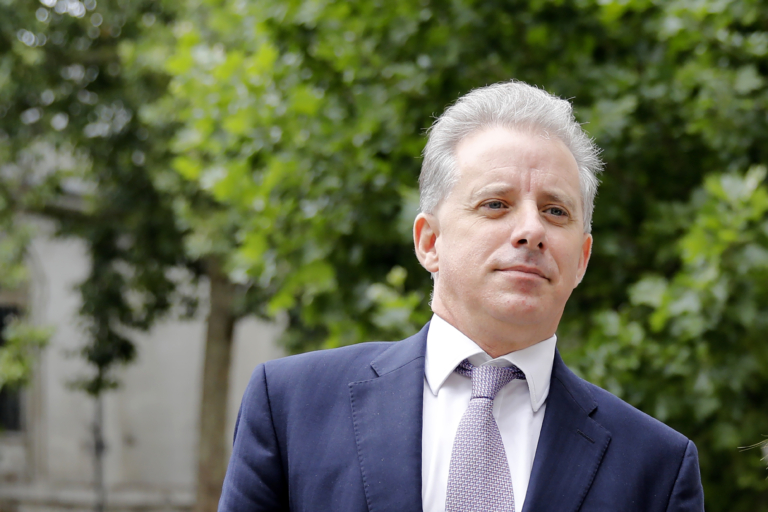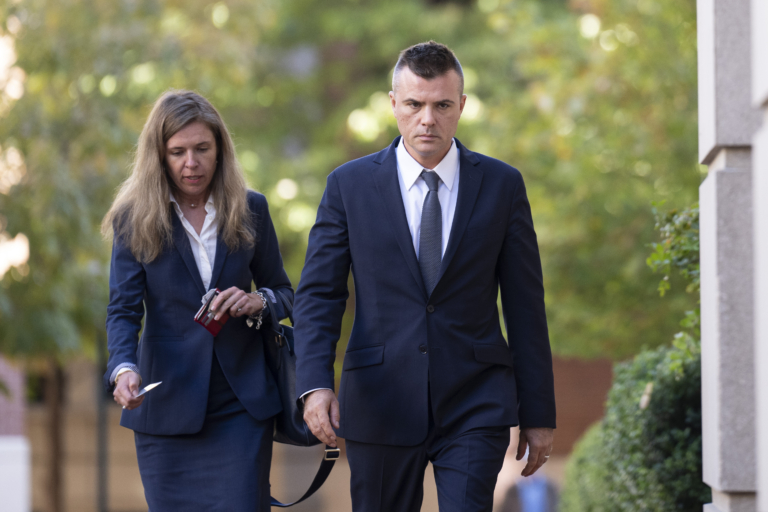The FBI did not interview the people connected to the information it used to open a full investigation of the Trump campaign during the heat of the 2016 election, according to the report by special counsel John Durham.
The bureau rushed to open the initial investigation based on unvetted intelligence from Australia, according to Durham, who has spent nearly three years investigating the origins of the FBI’s investigation of the Trump campaign.
The FBI’s rush to open the investigation and the shoddy evidence used as the premise for the probe were a departure from how the department treated other politically sensitive investigations in 2016, the report states. That includes the inquiry into the Clinton Foundation, which was virtually frozen in the leadup to Election Day in 2016.
The much-anticipated report (pdf), a copy of which The Epoch Times obtained ahead of its public release, also delves into other controversial aspects of Crossfire Hurricane, the FBI codename for the investigation of the Trump campaign.
“[T]he objective facts show that the FBI’s handling of important aspects of the Crossfire Hurricane matter were seriously deficient,” the report states.
The special counsel further impugned the bureau’s error-ridden applications to surveil Trump campaign associate Carter Page. FBI agents applied to renew the secret-court warrants on Page despite admitting, both at the time and subsequently, that they had no probable cause to do so.
Durham concludes that the FBI failed to uphold its “important mission of strict fidelity to the law.”
The special counsel “does not recommend any wholesale changes in the guidelines and policies that the Department and the FBI now have in place.”
“The answer is not the creation of new rules but a renewed fidelity to the old,” the report says.

“The promulgation of additional rules and regulations to be learned in yet more training sessions would likely prove to be a fruitless exercise if the FBI’s guiding principles of ‘Fidelity, Bravery and Integrity’ are not engrained in the hearts and minds of those sworn to meet the FBI’s mission of ‘Protecting the American People and Upholding the Constitution of the United States.'”
Trump, who has long condemned the investigation as a witch hunt and a hoax, responded to the report’s release on Truth Social.
“WOW! After extensive research, Special Counsel John Durham concludes the FBI never should have launched the Trump-Russia Probe!” the former president wrote.
“In other words, the American Public was scammed, just as it is being scammed right now by those who don’t want to see GREATNESS for AMERICA!”
The FBI did not immediately respond to a request for comment.
Opening ‘Crossfire Hurricane’
The FBI did not speak to the people who provided the information used for opening the investigation, Durham found.
The bureau also failed to examine its own databases, check with other intelligence agencies, interview essential witnesses, and did not use “any of the standard analytical tools typically employed by the FBI in evaluation raw intelligence,” the report states.
While Durham does not attribute a motive to the shoddy work, he points to “pronounced hostile feelings toward Trump” from Peter Strzok, the person in charge of the investigation.
Had the FBI followed its own rules, the bureau’s agents would have discovered that neither the bureau, the CIA, nor the FBI had any evidence to show that Donald Trump or anyone in his campaign had been in contact with any Russian intelligence officials at any time during the campaign, the report states.
The handling of the Trump investigation was a departure from the cautious approach the bureau took in handling matters related to former secretary of state Hillary Clinton, Trump’s election opponent, the report found. In one example, the FBI and Justice Department restricted an inquiry into the Clinton Foundation so that little-to-no investigative activity could take place in the months leading up to the election.

Durham highlights the distinct approach the FBI took to intelligence it received from a trusted foreign source indicating that the Clinton campaign planned to smear Trump by tying him to Russian President Vladimir Putin. The Clinton campaign’s goal, the intelligence said, was to divert attention from the scandal concerning Clinton’s use of an unauthorized private server to transmit top-secret government emails.
“Unlike the FBI’s opening of a full investigation of unknown members of the Trump campaign based on raw, uncorroborated information, in this separate matter involving a purported Clinton campaign plan, the FBI never opened any type of inquiry, issued any taskings, employed any analytical personnel, or produced any analytical products in connection with the information,” the report states.
“This lack of action was despite the fact that the significance of the Clinton plan intelligence was such as to have prompted the Director of the CIA to brief the President, Vice President, Attorney General, Director of the FBI, and other senior government officials about its content within days of its receipt.”
FBI Could Not Corroborate Steele Dossier
Federal investigators never manage to corroborate any of the claims in the infamous Steele dossier, Durham’s investigators concluded. The dossier’s author, former British intelligence officer Christopher Steele, could not corroborate any of the claims even when the FBI offered him $1 million to do so.
Similar to Durham, the report by special counsel Robert Mueller in 2019 included no corroboration of the claims in the Steele dossier.
The Clinton campaign paid for the creation and dissemination of the Steele dossier using a law firm as a cutout. The campaign and the Democratic National Committee agreed to pay federal fines last year for concealing the nature of the payments for the dossier.

Steele hired a U.S.-based Russian national, Igor Danchenko, to compile the claims in the dossier. Like Steele, Danchenko could not back up any of the claims when confronted by the FBI.
“Rather, Danchenko characterized the information he provided to Steele as ‘rumor and speculation’ and the product of casual conversation,” the report states.
FBI Spies Taped Three Trump Campaign Advisers
The FBI used three spies, or “confidential human sources,” to target and record Trump campaign advisers, including Carter Page, George Papadopoulos, and an unnamed senior foreign policy adviser, according to Durham.
Notably, the recordings of Page and Papadopoulos included exculpatory statements that the FBI failed to disclose to the Justice Department and the Foreign Intelligence Surveillance Court, Durham’s investigators determined. Page’s taped statements discredited claims in the Steele dossier about his alleged connection to former Trump campaign manager Paul Manafort. The FBI failed to act on those leads and did not report them to the DOJ, Durham found.
The report’s findings follow Durham’s successful prosecution and conviction of FBI attorney Kevin Clinesmith, who was found guilty of forging an email used to obtain a warrant to spy on Page.
Dossier Could Be Russian Disinformation
A former associate of Danchenko informed the FBI in 2008 that the Russian national told him that he had access to people who would pay for classified information, according to the report.
The tip triggered a preliminary investigation by the FBI in 2009.
“The FBI converted its investigation into a full investigation after learning that Danchenko had been identified as an associate of two FBI counterintelligence subjects and (had previous contact with the Russian Embassy and known Russian intelligence officers,” the report states.
Despite knowing these details in January 2017, the bureau failed to inform the secret surveillance court or to update the applications in which it cited claims that ultimately came from Danchenko. As a result, the court could not use the information to assess Danchenko’s credibility.

Instead of following up on the 2011 investigation, the bureau hired Danchenko as a confidential human source in 2017 as it continued to investigate the Trump campaign. Durham suggests that the FBI’s lack of curiosity about Danchenko may have made the bureau a victim of Russian disinformation.
“… [It] appears the FBI never gave appropriate consideration to the possibility that the intelligence Danchenko was providing to Steele—which, again, according to Danchenko himself, made up a significant majority of the information in the Steele Dossier reports—was, in whole or in part, Russian disinformation,” the report states.
From The Epoch Times
